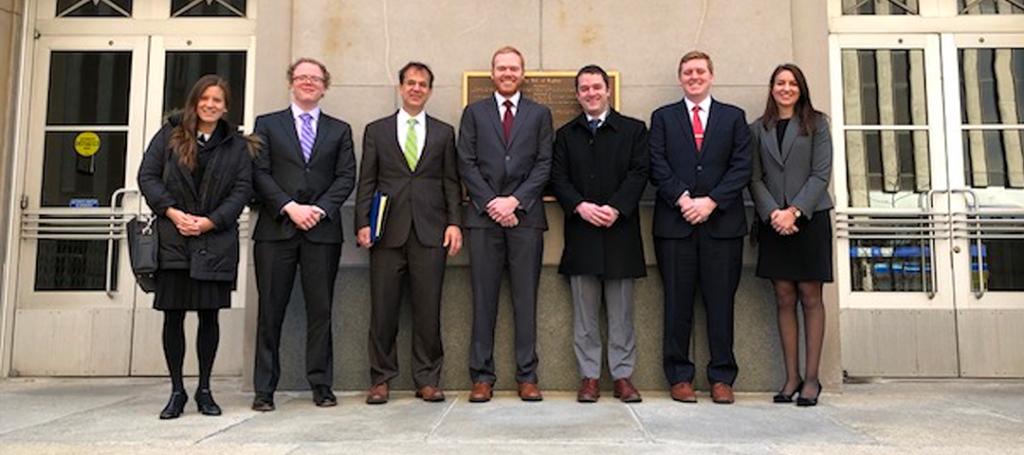The U.S. Court of Appeals Sixth Circuit has issued an opinion supporting the arguments made before the court in March by students of the University of Tennessee College of Law’s Appellate Litigation Clinic.
During the spring 2018 semester, students Danny Bihrle, Grant Mitchell, Michael Deel, Wesley Love, Machen Picard, and Jack Smith worked to prepare their case under the guidance of Professor Lucy Jewel and Adjunct Professor Wade Davies.
The court’s opinion on Tuesday delivered a rare suppression victory that will have a precedential effect on future cases in the jurisdiction, Jewel said.
“The opinion sends the message that law enforcement must be clear in filling out the paperwork necessary to obtain a search warrant and must include the facts that support the existence of probable cause to search a home,” she said. “It also sends the message that hearsay evidence should not be admitted at trial if it does not meet the specific requirements of the rule.”
The opinion is a significant accomplishment for Birhle and Mitchell who had the rare opportunity as students to argue before the U.S. Court of Appeals in Cincinnati on behalf of client Tyrone Dexter Christian. He was convicted of crimes related to trafficking drugs and possessing illegal firearms and sentenced to serve 17½ years in prison.
The argument concluded that Christian was entitled to a new trial because there was no probable cause to support law enforcement officers’ search of his home in Grand Rapids, Mich. prior to his arrest in September 2015. The students also argued that hearsay evidence was improperly admitted during the trial.
Jewel said preparing for the case was an enormous effort for the students and that their success speaks to the excellence of their work, the Legal Clinic, and the College of Law. Founded in 1947, the College of Law Legal Clinic is the longest-running of its kind in the nation and allows students to learn by doing—representing clients in need and helping resolve legal disputes under faculty supervision.
“We teach students to be exceptional lawyers with a spirit of service for helping clients in need,” Jewel said. “Throughout this case, the students put the client first, and that dedication helped produce this positive outcome.”
Next steps in this case are likely to include a motion for rehearing, Jewel said, and UT College of Law students will continue representing the client throughout the process.
The court opinion can be viewed here.
